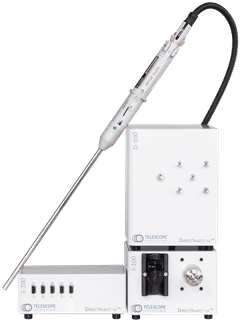To use all functions of this page, please activate cookies in your browser.
my.chemeurope.com
With an accout for my.chemeurope.com you can always see everything at a glance – and you can configure your own website and individual newsletter.
- My watch list
- My saved searches
- My saved topics
- My newsletter
Levothyroxine
Levothyroxine, also known as L-thyroxine, synthetic T4 or 3,5,3',5'-tetraiodo-L-thyronine, is a synthetic form of thyroxine (thyroid hormone). The natural hormone is chemically in the L-form, as is the pharmaceutical agent. Dextrothyroxine (D-thyroxine) briefly saw research as an anticholesterol agent but was pulled due to cardiac side-effects. The EU has recently standardized the use of the name "levothyroxine" for the drug. Common brand names include ""Thyrax"", "Euthyrox", "Levaxin" and "Eltroxin" in Europe, and "Levoxyl" and "Synthroid" in the U.S. There are also numerous generic versions approved by the Food and Drug Administration. Product highlight
UsesThis medicine is a hormone replacement usually given to patients with thyroid problems, specifically, hypothyroidism. It is also given to people who have Goitre or an enlarged thyroid gland. AdministrationIt is recommended that levothyroxine be taken half an hour to an hour before meals to maximize its absorption. It is also recommended that the patient take the tablet with one glass of water to ease swallowing as well as to help the tablet dissolve for absorption. Precautions and side effectsThere are also foods and other substances that can interfere with absorption of thyroxine replacement. Avoid taking calcium and iron supplements within 4 hours of the medication and avoid taking soy products within 3 hours of the medication as these can reduce absorption of the medication. Synthetic levothyroxine may have adverse side effects like: palpitations, nervousness, headache, difficulty sleeping, insomnia, swelling of the legs and ankles, weight loss and/or increased appetite. Some may be allergic to the medicine. If the patient develops a severe reaction to this drug like difficulty breathing, shortness of breath or swelling of the face and tongue it is imperative that the patient immediately seek medical attention. Marketing and approvalsSynthroid is the most prescribed brand of T4 in United States. Synthroid was marketed in 1955,[1] but was not FDA approved at that time as it was considered "generally regarded safe". In the 1990s, in response to debate as to whether Synthroid was more effective than other levothyroxine preparations, (which ended up concluding that there was little difference between Synthroid and generic brands[2] all levothyroxine preparations were required to undergo the formal FDA approval process. Synthroid was approved by the FDA on 2002-07-24.[3] References
Categories: Hormonal agents | Iodinated tyrosine derivatives |
|||||||||||||||||||||||||||||||||||||||||||||||||
| This article is licensed under the GNU Free Documentation License. It uses material from the Wikipedia article "Levothyroxine". A list of authors is available in Wikipedia. | |||||||||||||||||||||||||||||||||||||||||||||||||







